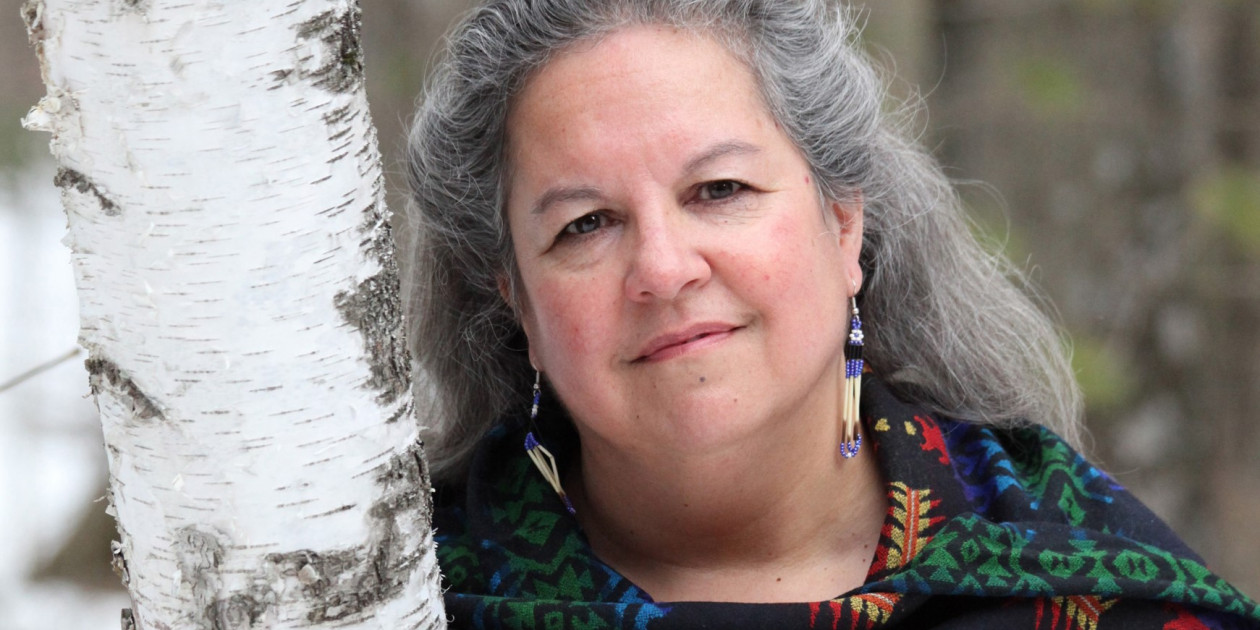“Robin Wall Kimmerer: ‘People can’t understand the world as a gift unless someone shows them how’”
By James Yeh, originally published in the Guardian (2020)
 Photo by Dale Kakkak
Photo by Dale Kakkak“This is a time to take a lesson from mosses,” says Robin Wall Kimmerer, celebrated writer and botanist. Her first book, published in 2003, was the natural and cultural history book Gathering Moss. She grins as if thinking of a dogged old friend or mentor. “What is it that has enabled them to persist for 350m years, through every kind of catastrophe, every climate change that’s ever happened on this planet, and what might we learn from that?” She lists the lessons “of being small, of giving more than you take, of working with natural law, sticking together. All the ways that they live I just feel are really poignant teachings for us right now.”
It’s the end of March and, observing the new social distancing protocol, we’re speaking over Zoom – Kimmerer, from her home office outside Syracuse, New York; me from shuttered South Williamsburg in Brooklyn, where the constant wail of sirens are a sobering reminder of the pandemic. The occasion is the UK publication of her second book, the remarkable, wise and potentially paradigm-shifting Braiding Sweetgrass: Indigenous Wisdom, Scientific Knowledge, and the Teachings of Plants, which has become a surprise word-of-mouth sensation, selling nearly 400,000 copies across North America (and nearly 500,000 worldwide). In January, the book landed on the New York Times bestseller list, seven years after its original release from the independent press Milkweed Editions – no small feat.
“This is a time to take a lesson from mosses,” says Robin Wall Kimmerer, celebrated writer and botanist. Her first book, published in 2003, was the natural and cultural history book Gathering Moss. She grins as if thinking of a dogged old friend or mentor. “What is it that has enabled them to persist for 350m years, through every kind of catastrophe, every climate change that’s ever happened on this planet, and what might we learn from that?” She lists the lessons “of being small, of giving more than you take, of working with natural law, sticking together. All the ways that they live I just feel are really poignant teachings for us right now.”
It’s the end of March and, observing the new social distancing protocol, we’re speaking over Zoom – Kimmerer, from her home office outside Syracuse, New York; me from shuttered South Williamsburg in Brooklyn, where the constant wail of sirens are a sobering reminder of the pandemic. The occasion is the UK publication of her second book, the remarkable, wise and potentially paradigm-shifting Braiding Sweetgrass: Indigenous Wisdom, Scientific Knowledge, and the Teachings of Plants, which has become a surprise word-of-mouth sensation, selling nearly 400,000 copies across North America (and nearly 500,000 worldwide). In January, the book landed on the New York Times bestseller list, seven years after its original release from the independent press Milkweed Editions – no small feat.
Continue reading at the Guardian.